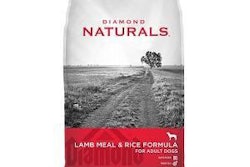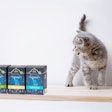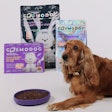The news of recent pet food recalls by Diamond Pet Foods and brands manufactured by them has been plastered all over the Internet. They're the topic of online discussion in forums, social networks and blogs across North America.
Unfortunately, many pet parents have obtained their information about these recalls from questionable sources. Some websites are reporting on pet food recalls responsibly, but many more are not. The reasons behind misleading reports may range from a lack of understanding to fear mongering. Encouraging hysterics can increase website traffic, boost sales of books or other informational products or be used as a marketing tool by competitors. This is a contemptible disservice to pet parents who are only trying to figure out what is going on, but it won't stop any time soon.
This is when I would expect to see petfood manufacturers going out into the wild Internet frontier to set the record straight. That isn't to say you should argue or misrepresent yourself, but there is a huge opportunity to calmly explain what is happening with simple facts. While there will always be people who are more intent on being outraged than hearing the truth, many others appreciate factual guidance. However, I have yet to see any brands venture into the social Internet to address concerns outside of their own web properties. By not doing so, they're placing their brand in the hands of those who don't have the best interests of the company, or even pets, in mind.
This point was brought home to me after responding to a post on LinkedIn. I have personally responded to two threads on LinkedIn about these recalls because the panic was too painful to watch, and I believed the brands involved weren't being treated fairly. After all, this is what we, as pet parents, wanted - full disclosure and corporate accountability.
I expected some objection or even hostility in reply. Who I heard from instead were perfectly reasonable people who thanked me for the information. In fact, my statement was picked up by About.com Pet Shops Guide, Alissa Wolf, who proceeded to post A Philosophical Look at the Pet Food Recalls on About.com. Her fair, accurate reporting makes her site a valuable source of information for pet parents.
My posts weren't anything magical. I simply reminded people that only three Diamond brands tested positive for Salmonella and the other brands did not. The vast majority of the reporting infers that these brands are being recalled due to contamination, so this information was welcomed with a sigh of relief by concerned pet parents. I also reminded pet parents that precautionary, voluntary recalls are a sign of progress in the petfood industry.
The lesson here is that you shouldn't be afraid to put yourself in the line of fire during a recall or other PR nightmares. It won't always be pleasant, but you'll reach those who want to know the basic facts and who appreciate the calming voice of reason. Of course, it is imperrative that you be completely honest, forthright and factual in your response. Don't be tempted to argue or engage those who are obviously more interested in attacking petfood companies than protecting pets. Identify yourself, state the facts, admit mistakes and provide contact information for questions and concerns. It should be noted that this is not a job to assign to your average PR or marketing staff. The individual for this job must be familiar with the social Internet and know how to communicate effectively, professionally and honestly with pet parents.
Other PR-positive actions include:
- Provide current information about recalls on your website so pet parents can quickly verify information.
- Immediately distribute press releases.
- Notify distributors and make sure retailers are kept in the loop.
- Continue to keep recall information updated.
- Contact everyone again when the issue has been resolved.
- Ask for feedback.
- Review the incident and the public's response.
- Make changes to prevent recurrence and to more effectively manage similar situations.
Public relations is much more personal than it used to be. Brands that embrace it as an opportunity to both learn and educate will ride out storms battered, but better for the experience.


















